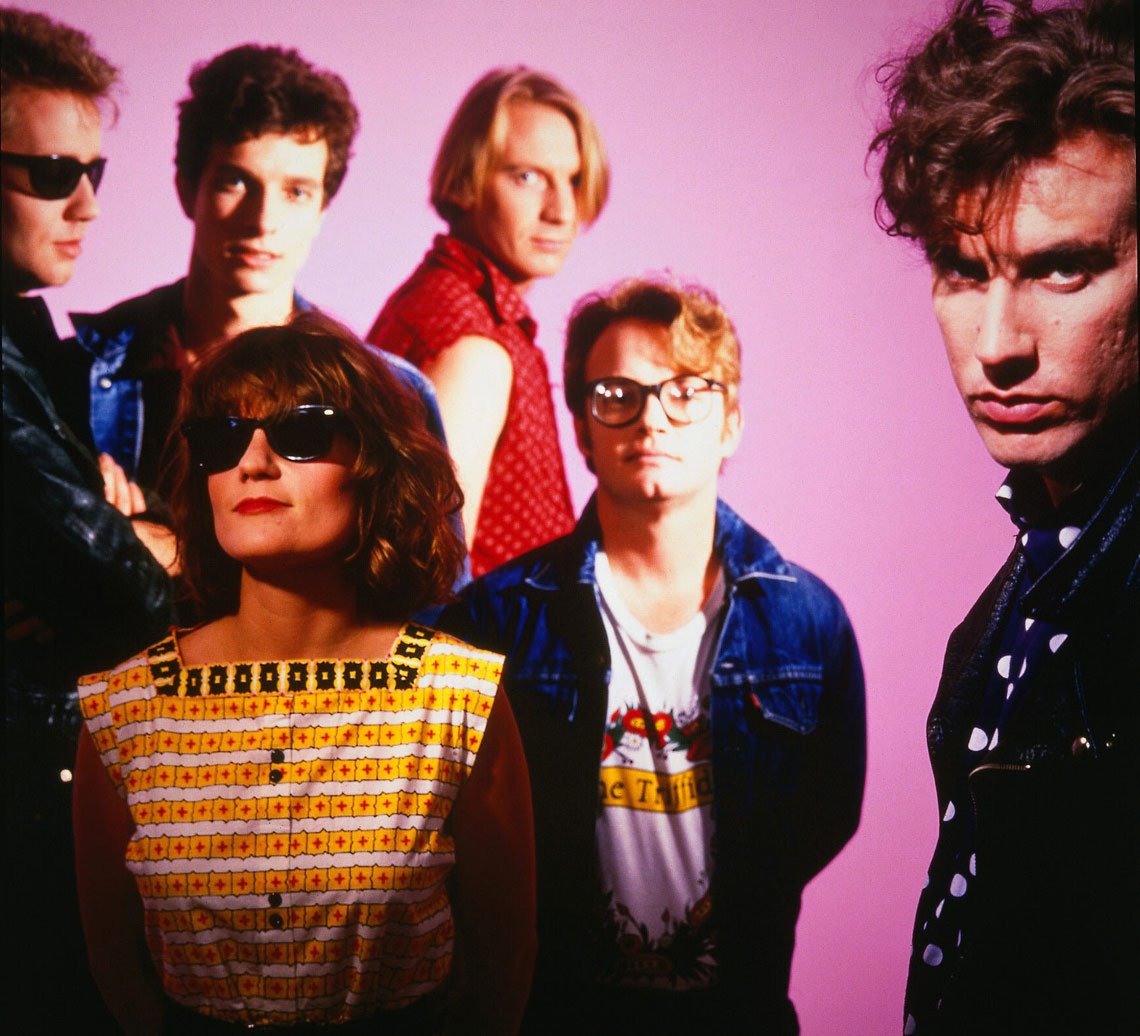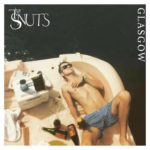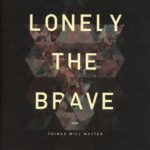I’ve never been to Australia, and my mental image of the country was largely formed by listening to The Triffids (and of course by another great Australian cultural icon, Neighbours). Of the other great Australian alternative acts of the mid-1980s, Nick Cave was always rooted in American Gothic, whilst The Go-Betweens’ bedsit romanticism was universal; but The Triffids, with their songs about wide open spaces, searing heat and small-town melodrama, were pure Australiana, as typically Australian as The Kinks are English and Serge Gainsbourg is French.
Following two albums of lo-fi outback alt-country, ‘Treeless Plain’ and the compilation ‘Love in Bright Landscapes’, ‘Born Sandy Devotional’ was the band’s great leap forward, a widescreen journey through a literal and metaphorical Australian desert in the company of a heartbroken, hallucinating and hard-drinking narrator.
Musically, it’s the kind of jump Radiohead made from ‘Pablo Honey’ to ‘The Bends’, from being a band tentatively in search of a sound to one who have suddenly found their voice, and want the whole world to know. Then little-known producer Gil Norton, who would later produce Pixies’ ‘Doolittle’ amongst others, makes the music sparkle.
From the gorgeous, shimmering opener The Seabirds, via the eerie suicide note of Tarrilup Bridge, to the savage, frenetic climax to Lonely Stretch, this is the sound of a band on fire. It was a sound that would go on to influence Nick Cave – post-BSD his sound changed considerably (listen to The Triffids Lonely Stretch and Save What You Can, then Cave‘s City of Refuge and Nobody’s Baby Now), and he even recruited Triffids’ bassist Martyn P Casey in 1990.
But what really separates ‘Born Sandy Devotional’ from what came before – and indeed what would come after – is David McComb’s songwriting. If on their earlier albums he sounds like a novelist having to reduce his stories into song-sized chunks, on BSD he expands the songs to fit his imagination. “When we finished Born Sandy Devotional I knew it was the best thing we’d ever done, there was no question about it,” he told Melody Maker in 1986. “The writing was much more autobiographical than anything I’d done before”. If that’s the case, then McComb must’ve been through some seriously bad times, as BSD seems to describe a journey into lovelorn, booze-soaked oblivion – a journey with “no-one left to hold him back, no-one to call out his name.”
Whatever McComb went through, it makes for stunning, literary standard songwriting as evidenced by these lines from ‘The Seabirds‘:
“He announced their trial separation, spent the night in a Park Beach motel bed/Told the stranger lying next to him/Rain hitting the roof hard over his head/She said ‘What’s the matter now, loverboy?/Has the cat run off with your tongue?/Are you drinking to get maudlin/Or drinking to get numb?”
The incredible Lonely Stretch continues the theme of the journey as metaphor for romantic loss:
“There’s a spot on a map, it’s just a tiny dot/That’s where my sweetie lives/You know that means a lot/I think of her sitting in the afternoon sun/Sitting and drinking and having fun/I took a wrong turn.”
But the album’s heart, the moment in which all its themes converge, is Wide Open Road, probably their most famous tune and one of the greatest alternative rock songs of the 1980s. If Australiana is a genre, then this is its theme tune. It’s the moment McComb’s loss turns into rage:
“I drove out over the flatlands, hunting down you and him/So how do you think it feels sleeping by yourself/When the one you love/The one you love/Is with someone else?”
Combined with one of the album’s prettiest tunes, it’s a quite simply stunning piece of music and one that, in a parallel universe, made the band U2-sized.
The Triffids followed BSD the next year with Calenture, an equally confident and more radio-friendly take on their now signature sound (talking as I was of Neighbours, its opening track Bury Me Deep in Love soundtracked Harold and Madge’s wedding, to moving effect). Inexplicably, ‘Calenture’ failed to cross over, and after 1989’s patchy ‘The Black Swan’, the band, exhausted by years of travelling and touring, broke up. Tragically, McComb, wracked by back pain after suffering crushed vertebrae in 1986, developed an addiction to heroin, had a heart transplant operation in 1996, and then died several days after a car accident in 1999, bringing any possibility of a reformation to an end.
Rock music shot out on various thrilling tangents in the late 1980s, some of them dead ends, some of them paths to the future. Born Sandy Devotional’s heartbreaking, cinematic Australiana may have been the former, but as journeys into oblivion go, it’s one of the best. Just be thankful someone else made it.




